Facebook-based artistic collective Local Studio Hong Kong recently published a set of illustrations titled “Hong Kong is not China“, marking the political, social, linguistic and cultural differences between Hong Kong and mainland Chinese society.
While the 22 illustrations that went viral on Facebook with more than 4,000 likes and 3,600 shares have been viewed by some as discriminatory — or even an expression of separatism — the anonymous artists defended their work:
歧視?分裂主義?
算啦,話”我係香港人”都會比人話歧視同分裂。
因為是個人創作,就會是主觀。
香港人可以睇下,用黎打下飛機,同時諗下點樣唔變到中國一樣;而中國人外國人了解下(真係一下)中港有咩唔同。
Discrimination? Separatism?
Forget about it. The very claim “I am a Hong Konger” could be criticized as discriminative and separatist.
Any personal expression is subjective.
Hong Kongers can take a look. You may find it self-comforting and start thinking about how to prevent Hong Kong from becoming like China. Mainland Chinese and foreigners can also take a look and see the difference between Hong Kong and China.
Though some of the representations are biased and over-generalising, viewing them alongside the debates in the comment sections on the group certainly gives readers a clearer idea on the differences between the two societies.
It also demonstrates the self-perception of those Hong Kongers eager to defend their values against so-called mainlandization, a term frequently used in a negative sense to describe economic, social and cultural integration between Hong Kong and mainland Chinese communities since 2004, when policies such as the Mainland and Hong Kong Closer Economic Partnership were introduced by Beijing.
The first illustration (on top) marks the difference between Hong Kong and China with insignia representing the two societies. Hong Kong is represented by the lion rock, an iconic hill on the island, while the umbrella icon recalls the ‘umbrella’ protest movement that took over Hong Kong's streets from September to December 2014, aimed at pressuring the Beijing government to grant Hong Kong people the right to nominate and elect the city's top leader.
China in stark contrast, is represented by the Communist Party logo and the Gate of Heavenly Peace on Tiananmen Square, the place where Chairman Mao Zedong announced the establishment of the People's Republic of China (PRC) in 1949, and which overlooked a brutal crackdown on student protests in 1989.
This passport illustration is factually correct, but as one commenter pointed out:
Shhh…keep it a secret! Actually many many Chinese people hold more than one passport! And many of them are making “patriotic” and pro-communist party comments here on Facebook right now!
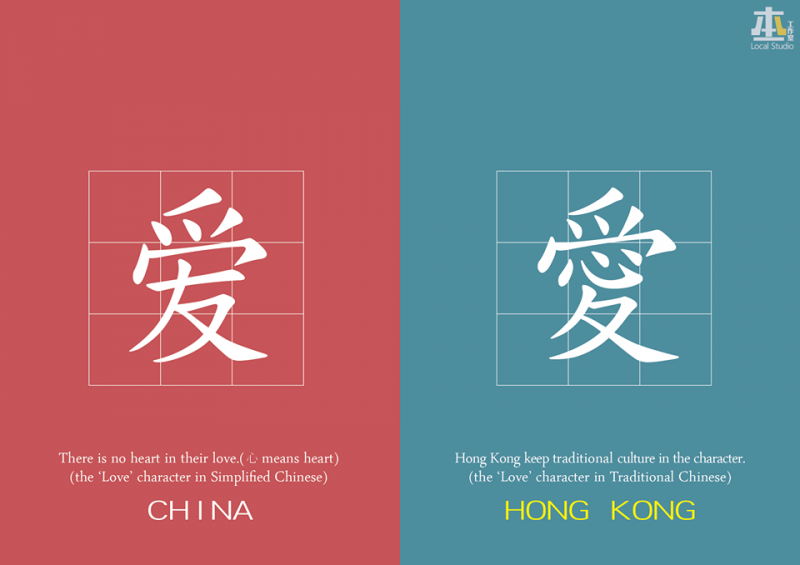
Simplified and traditional Chinese font.
Simplified Chinese characters were promoted by the Chinese Communist Party in mainland China to increase literacy rates after the establishment of the PRC in 1949.
In regions not under the CCP's direct rule including Hong Kong, Macau and Taiwan, however, traditional Chinese is the official written language. Many Hong Kongers believe traditional Chinese is more authentic as the shape of the character reflects its meaning. The word “love” indicated in the illustration, for instance, is composed of a number of morphemes including a hand, a shelter, a heart and a friend when written in traditional Chinese script. In simplified Chinese, the heart is missing.
Some find the above illustration offensive as the ‘squatting’ posture could be regarded as somehow more primitive. Of course, it can be interpreted otherwise, as one commenter joked:
Chinese: Healthy enough to squat down.
HK: Too fat, knees will snap.
Even this seemingly objective illustration triggered some politicized ripostes, such as this one:
No, it's not a good example. Firstly, Tibet and Uyghur region, I support their independence. So for me, I think they shouldn't be Chinese territory either.
Many disagree over the generalisation inherent in these toilet scenes:
Ha, this is so biased. Try to increase HK population by about 20000% and see if HK people are clean as you think
please visit any 公廁 [public toilets] in HK and see for yourself
As a former colony of the United Kingdom, Hong Kong drives to the right hand side of the road while mainland Chinese stick to the left hand side.
Many commenters found grounds to disagree with this depiction too:
nope. sorry. raised in HK but can't agree with this. this is just an insult with no factual basis.
The above representation is far from realistic, as another commenter points out:
CLEARLY, you have not be on the MTR [Hong Kong metro system], especially during busy hours. Lived in HK all my life and have never seen this. ever. Such biases…
This picture triggered a heated debate:
Chinese love to be enslaved? . . .seriously? this is pure insult with no factual basis.
And a sarcastic reply:
You think it is an insult because you are brainwashed by western imperialist values. Patriotic Chinese do think it is an honour to be enslaved and manipulated by the Chinese Communist Party. Have you heard of the song “Learn the Good Example of Lei Feng”? Here are the lyrics: “Loyal to the Revolution and the Party…Willing to be the screw of the Revolution machine…”
Political propaganda is frequently seen on the streets of mainland China. In Hong Kong, the above banner “God Crush the Chinese Communist Party” is the slogan of a religious group, Falun Gong, which has been outlawed in mainland China but is still very active in Hong Kong.
There is zero dispute about the representation of the food security problem in mainland China.
Actually, there are more email service providers in mainland China than in Hong Kong, but most of the email services lack https encryption meaning authorities can access user and content data without accountability.
Surprisingly and unfortunately, people agree that Hong Kong police now acts like mainland police.
China Central Television (CCTV) is the most important mouthpiece of the CCP while Asia Television (ATV) is explicitly pro-Beijing Television in Hong Kong.
As ATV's audience is so small, it lacks the advertising revenues required to power its operation. Under huge public pressure, the Hong Kong government has decided to discontinue its free-to-air license.
Some mainland Chinese pointed out in the comments section, CCTV is not a “must” and there are other choices. Yet even commercial television channels in China are subjected to the censorship of the single party government. In Hong Kong, a practice of self-censorship also prevails on mainstream television and in newspapers.
Here the glass heart represents an easily broken heart. Chinese diplomats often invoke the phrase “hurt the Chinese people's feelings” to criticize negative comments about China. This illustration was misunderstood by many who thought it implied Chinese people were weak-hearted.
The numbers “6” and “4” are highly sensitive in China as combined they evoke the June 4 Tiananmen incident of 1989. Every year, when the June 4 anniversary is near, related numbers, like 64 and 1989, become unsearchable on the Chinese Internet.
Many disagreed about the depiction of Hong Kong's political system here since the administration is “executive-led” and the legislature does not have actual power since lawmakers cannot propose private members’ bills that change the administration's public expenses.
The constitutional principle “One Country, Two Systems” that defines the relationship between China and Hong Kong is often understood in a political-economic sense and the term “two systems” refers to the pair's respective socialist and capitalist systems.
However, as China grows more capitalistic, many Hong Kongers see the distinction between Hong Kong and China in more socio-cultural terms. While the struggle for genuine universal suffrage on the political front is one way of defending the city's autonomy, a parallel cultural battle is taking place in which Hong Kongers attempt to redefine the city and its people's identity.

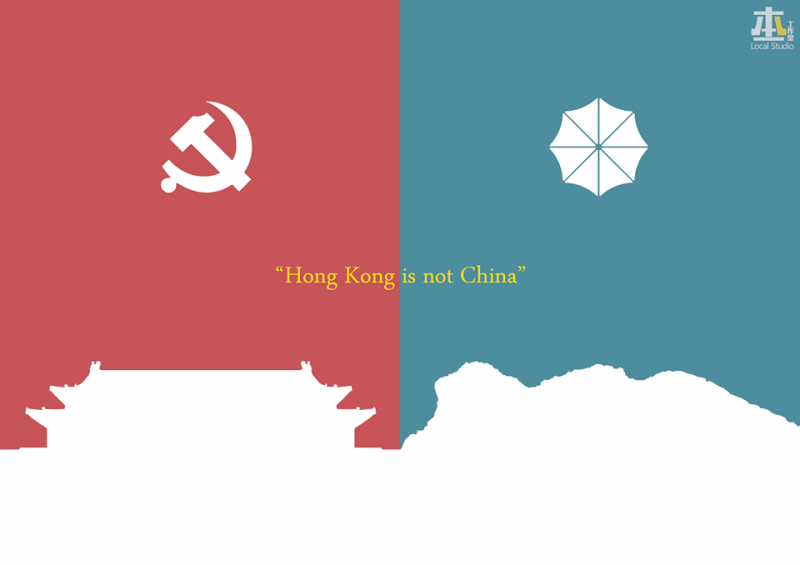
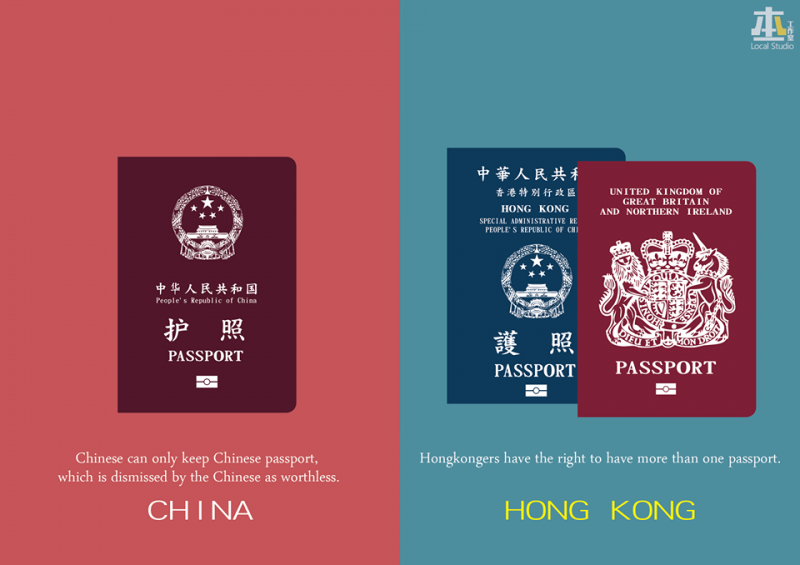
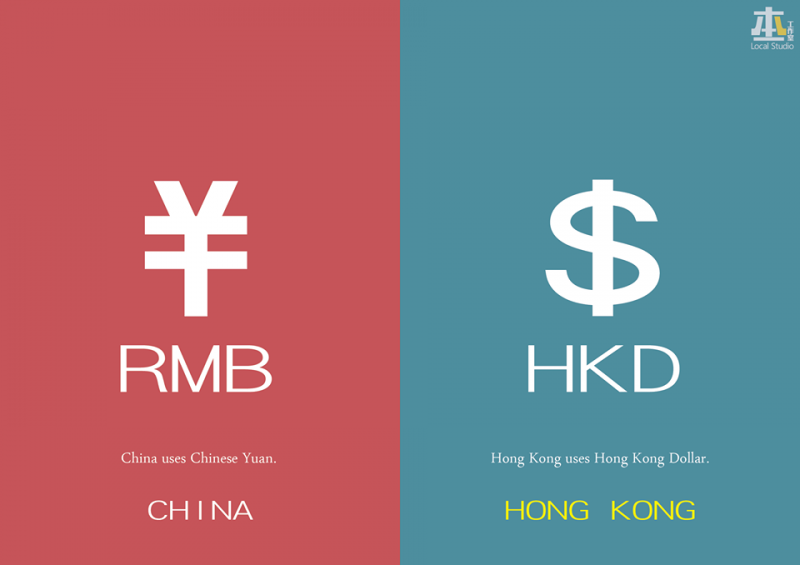
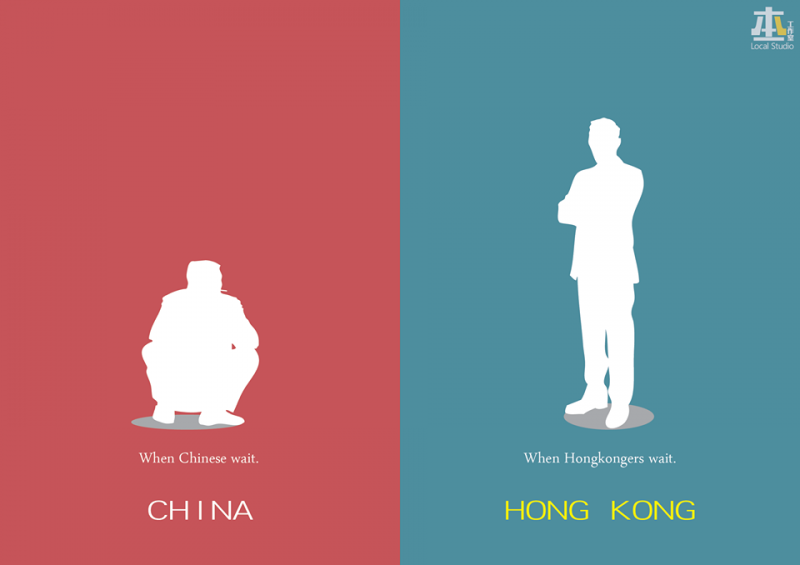
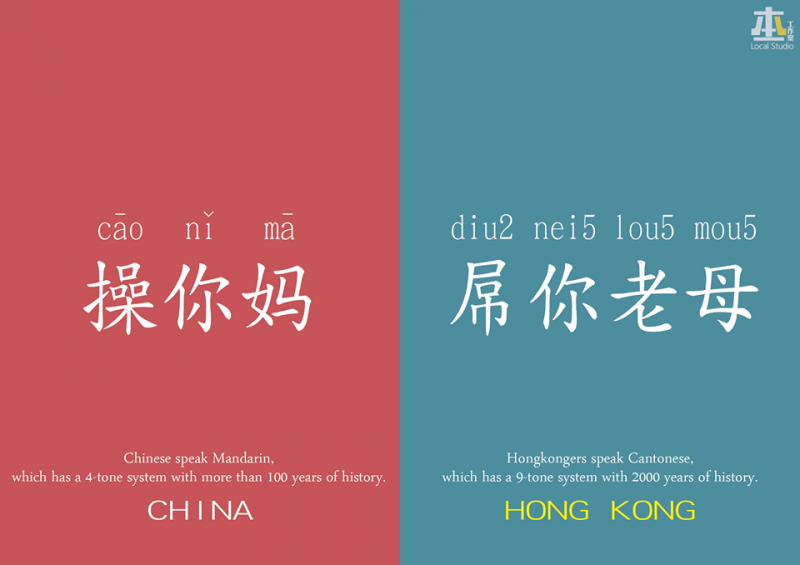
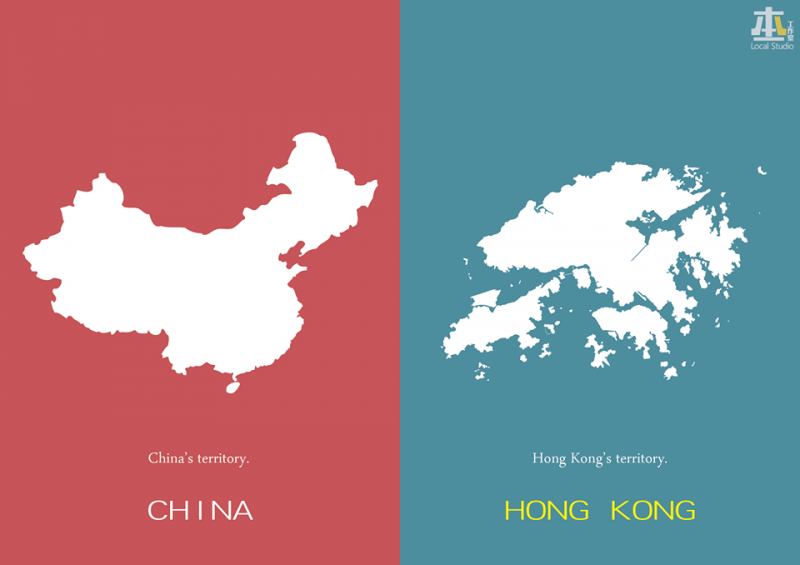
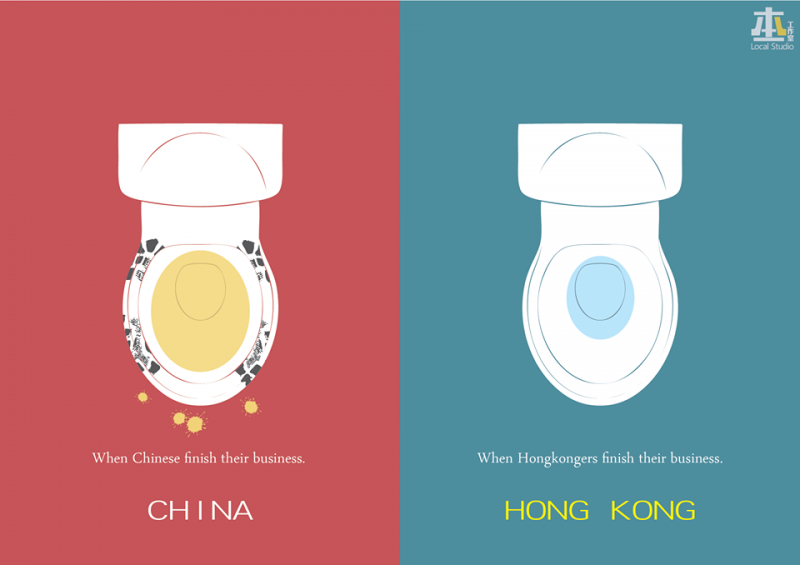
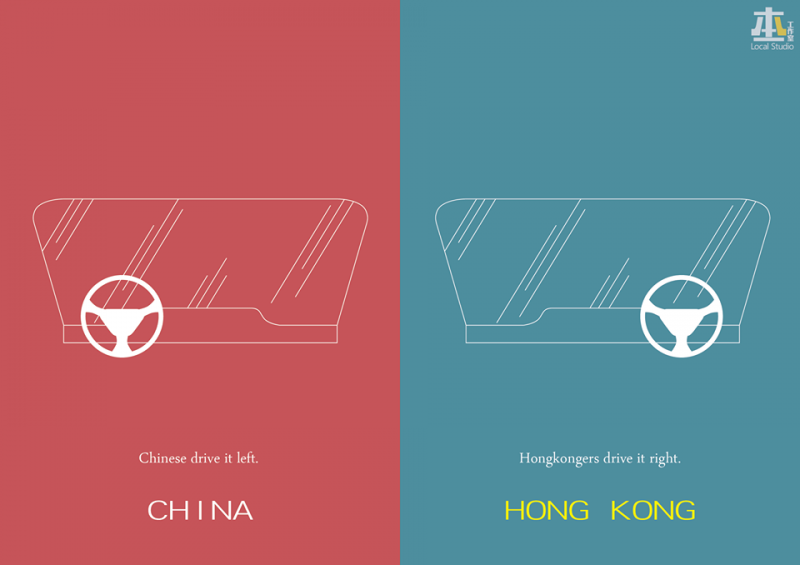
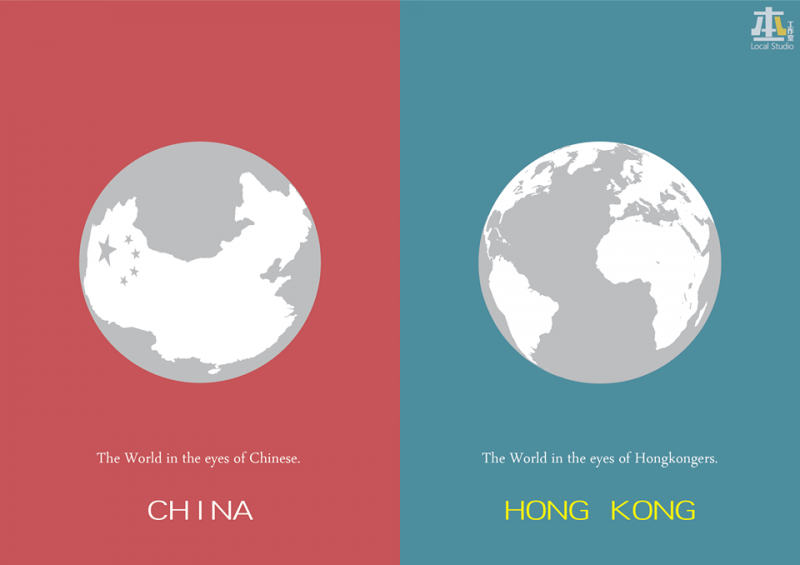
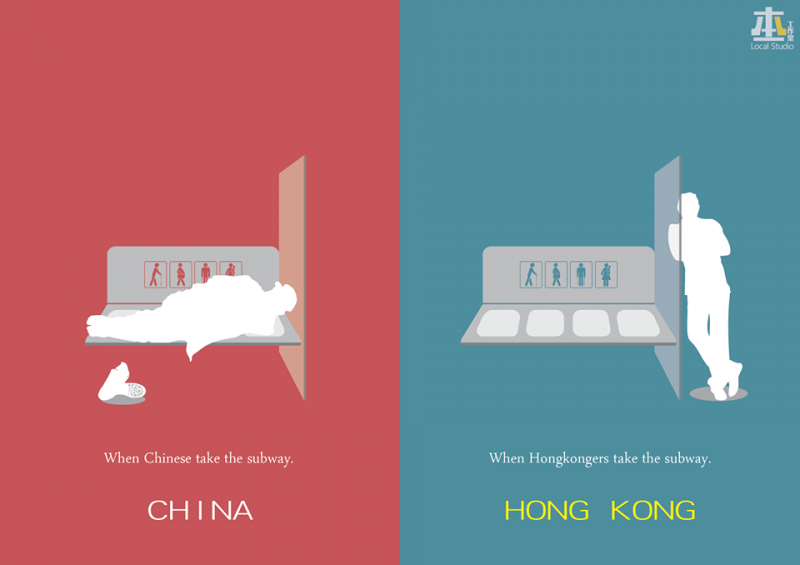

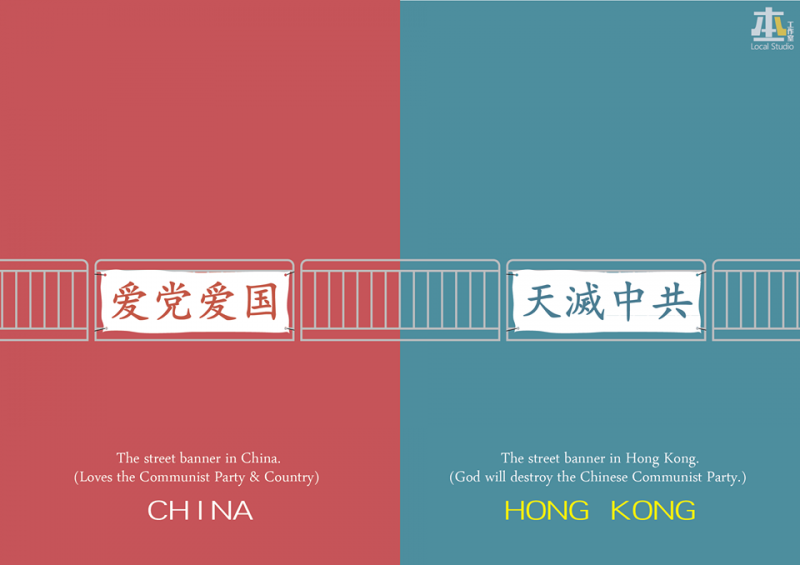
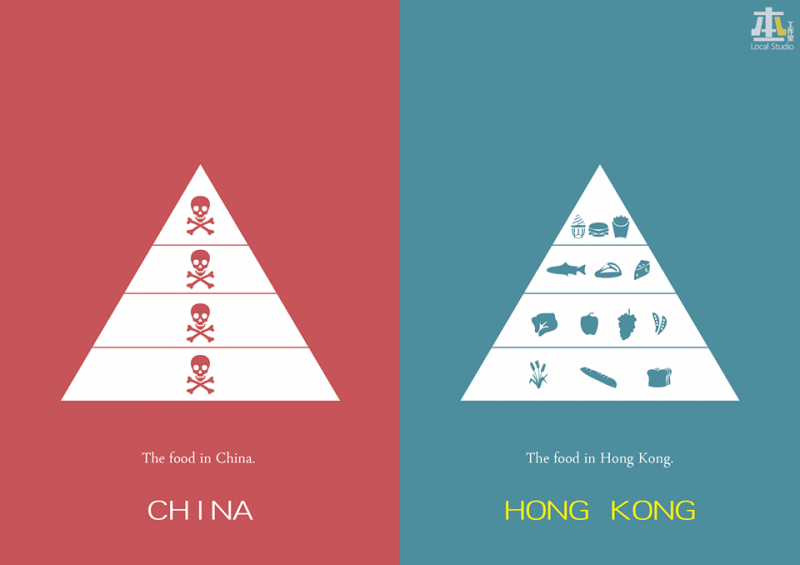
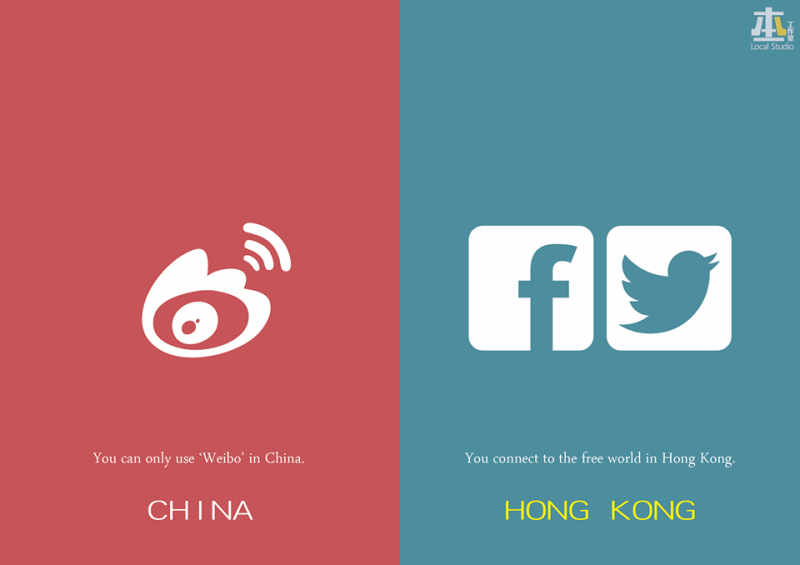
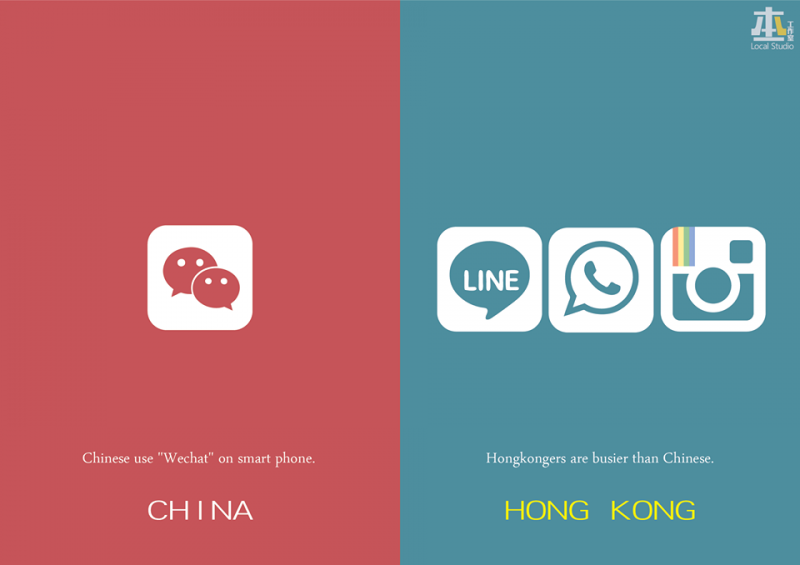
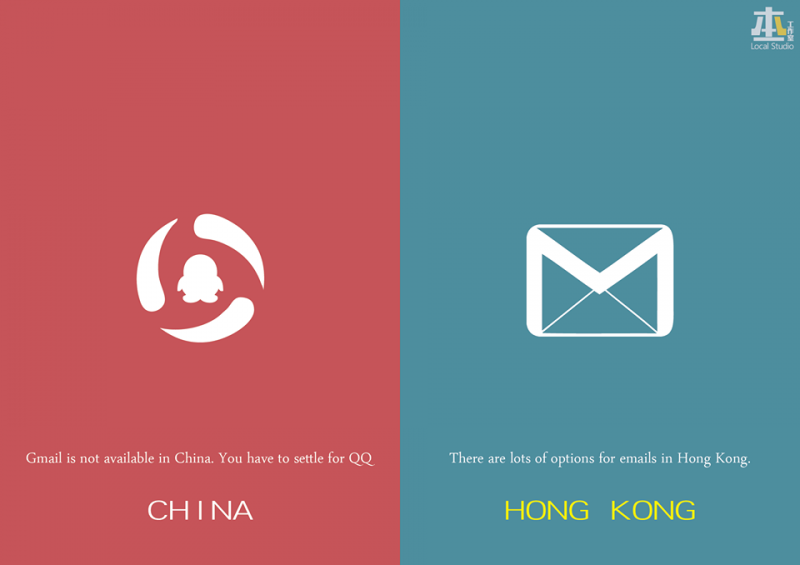
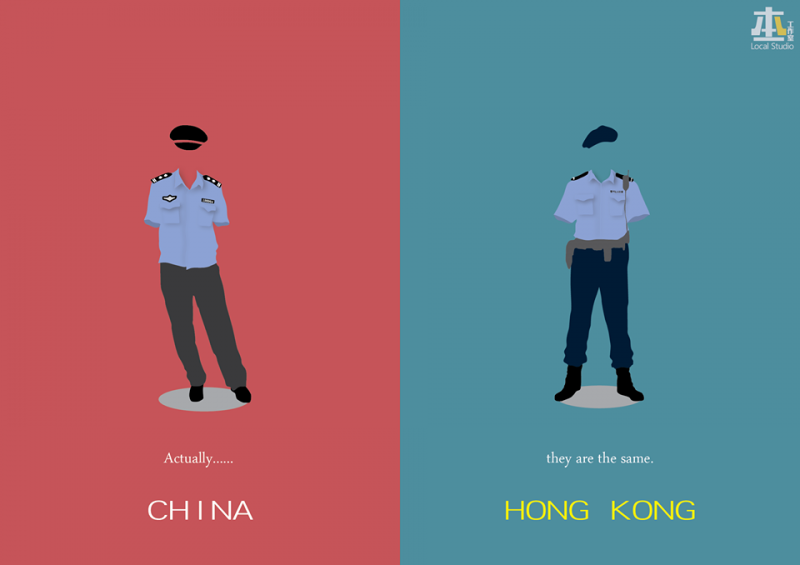
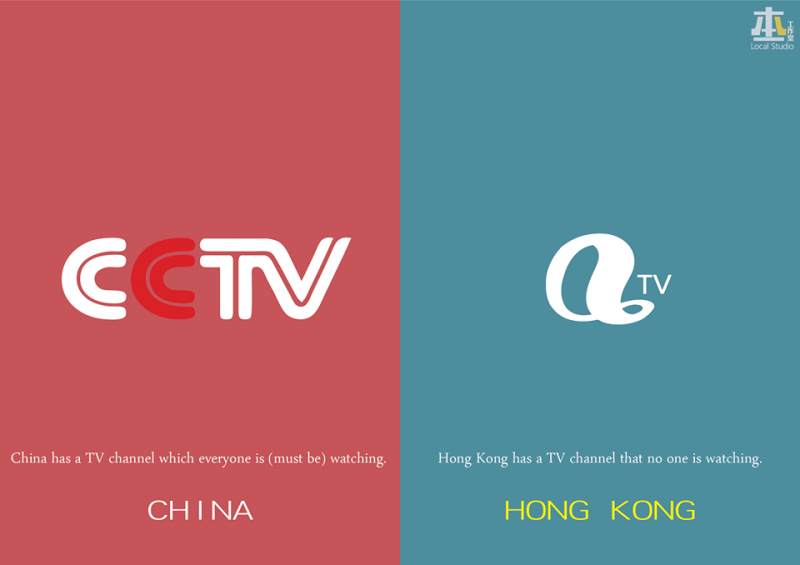
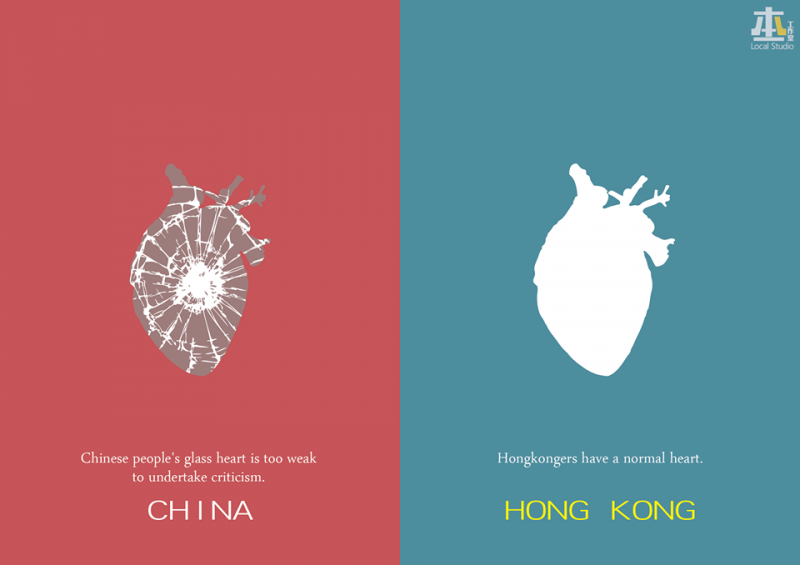
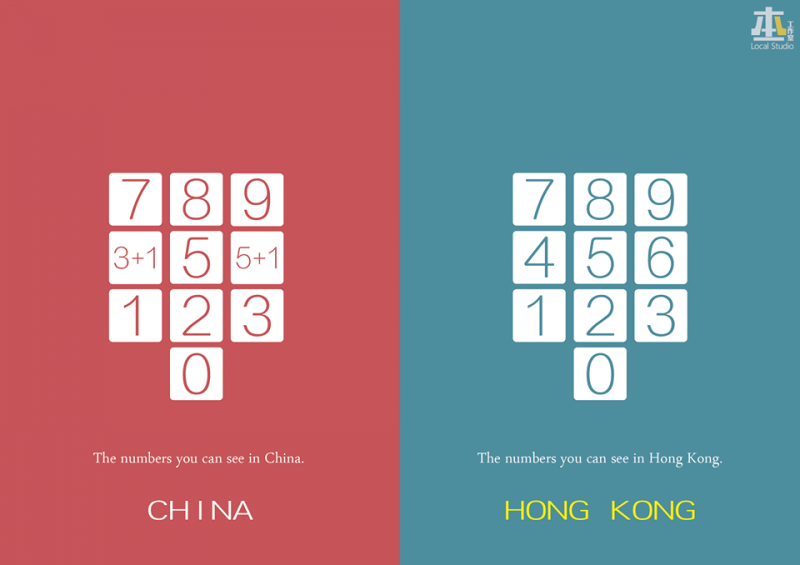
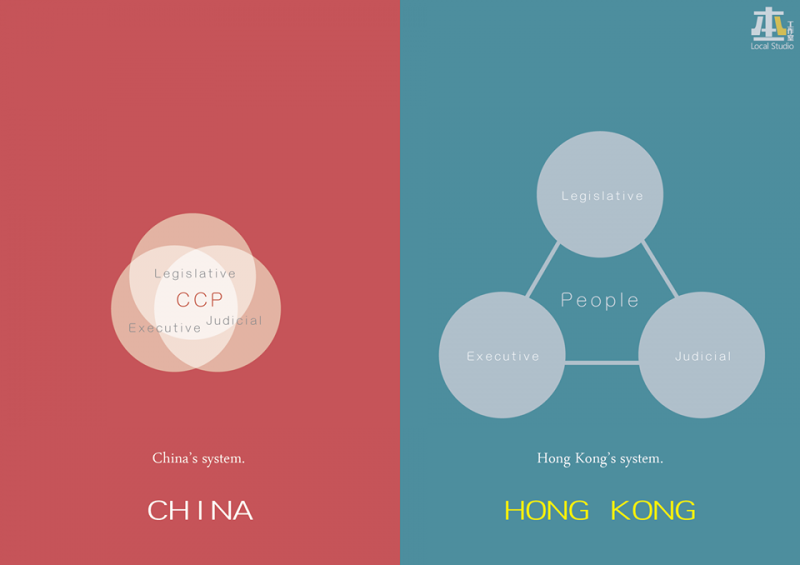






2 comments
uh I saw those shoe markings on a toilet seat down south in Taiwan (usually it was squat toilets). It does make sense in public restrooms to have a squat so you don’t touch the toilet seat because even with a paper cover … it’s a great deal of intimacy with absent strangers.
and I believe Japan has also claimed the same kanji with a heart (Traditional) and without in China (simplified to successfully increase literacy in the poorest and in women) but neither HK nor Japan invented the character with or without the heart – the heart was created in the Mainland and nobody else got the majority further away from poverty and its not a domestic Mainland company that is causing all those worker suicides at the Apple factory.